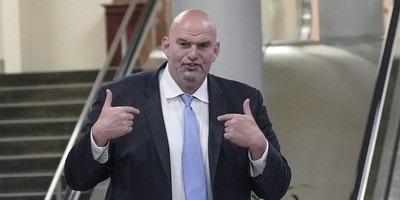As the last rescued Chilean miner came above ground — after spending 69 days deep in the lower reaches of earth and surrounded by 700,000 tons of unstable rock — the world watched in awe and tears. The men appeared remarkably healthy after their ordeal. Emotions were, understandably, high after the survivors completed their half-mile journey to the surface; predictably, the men’s thoughts were on family and faith. Mario Sepulveda, an ebullient man and the second man to emerge from the bullet-shaped rescue tube, said, “I was with God. I was with the Devil. God and the devil were fighting over me, and God won. I always knew they would get me out. I always had faith in the professionals here in Chile and in the Great Creator.” At 56 years of age, Omar Reygadas, one of the older miners, became a great-grandfather for the fourth time while he was trapped underground, while Jimmy Sanchez, the youngest miner at age 19, has a four-month-old baby, and Richard Villarroel is due to become a father in November.
Chilean President Miguel Juan Sebastián Piñera Echenique, Ph.D, declared that what “started as a possible tragedy,” ended up “as a real blessing from God.” Piñera, in contrast to American President Barack Obama’s actions during the BP oil spill disaster in the United States, was intimately involved in the rescue operation. The Chilean President, his wife, and his top-level staff — Mining Minister Laurence Golborne, Health Minister Jaime Manalich, and the engineer who coordinated the rescue, Andre Sougarret — were visibly present and obviously competent throughout the crisis, informing and rallying the nation and declaring their commitment to the miners’ rescue. Piñera said, “It will take time, but it doesn’t matter how long it takes to have a happy ending.” As “experts” from around the world began second-guessing the Chilean plans, Golborne showed his competence: “There is no need to try to start guessing what could go wrong. We have done that job, and we have hundreds of different contingencies.” One of the miners’ relatives summarized the determination of the nation, “This won’t be a success,” she said, “unless they all get out.”
To grasp the significance of this mining rescue requires understanding that the miners were trapped underground longer than anyone in recorded history. Further, no one even knew whether they were alive for 17 days after the August 5 cave-in. The world was stunned on August 22 when the bore hole reached the miners’ refuge and a note was returned disclosing their survival. Luis Urzua, shift supervisor of the mine, was the driving force in keeping the men alive and relatively healthy; his leadership is credited for the plans that doled out 48 hours’ worth of rations to hold the men until food could be sent down to them nearly three weeks into their ordeal. In addition, he drew the maps that enabled the rescuers to locate the men with the precision necessary for the successful rescue. When he emerged from the entrapment, Urzua proudly proclaimed, “We have done what the entire world was waiting for. We had strength, we had spirit, we wanted to fight, we wanted to fight for our families, and that was the greatest thing.”
Recommended
Also, it was impossible to escape the religious significance of the rescue. The first rescuer made the sign of the cross as he was lowered into the mine to begin evacuating the trapped miners. Some reports identified Mario Gomez, the oldest trapped miner at 62, as the spiritual leader of the men. Gomez credited the Vatican for providing a “literal and spiritual” lifeline for the miners when they sent down 33 mini-Bibles and 33 rosaries. But not all of the captured miners were Catholics; the presence of evangelical believers reveals significant religious changes that are sweeping through Latin America and South America.
The Baptist wire services told the story of a Baptist pastor, Marcelo Leiva, and one of the miners, Jose Henriquez, who collaborated on the Bible Studies that Henriquez was conducting for fellow evangelical believers underground. Henriquez’s brother distributed T-shirts to those at Camp Esperanza, the tent city called “Camp Hope” set up for those awaiting the miners. The shirts bore a Bible verse, “To Him be the glory and honor. Because in his hands are the depths of the earth, and the heights of the mountains are His” (Psalm 95:4).
There is no question that the Chilean rescue involved expert planning, top notch engineering, quality equipment, and the ingenious problem solving of experts from a number of countries around the world. In addition, the miners give appropriate credit to their leaders, who kept them strong emotionally and physically. Villarroel said, “We had a boss … everyday he would tell us we had to be strong … we didn’t have hope. Strength comes from internal energy and prayer … I never used to pray, here I learned to pray. I got closer to God.” In fact, Time Magazine reported that the miners often sang hymns and described the atmosphere underground as being like a church service. Jimmy Sanchez, one of the outspoken believers, said, “There are actually 34 of us, because God has never left us down here.” Ultimately, Villarroel and the other rescued Chilean miners recognized — as we must all learn to do — that their fate rested not in human hands or expert plans alone, but in the providence of God. Villarroel surely spoke for the other miners — many fell to their knees in prayer as they came out of the rescue capsule — when he thanked God for a second chance at life. Omar Reygadas clutched his Bible as he exited the rescue capsule, and he knelt in prayer when his feet touched ground. His first words were: “God Lives.” From the first to the last rescued Chilean miner, these 33 men have learned much they can teach us about faith and what is real.

























Join the conversation as a VIP Member